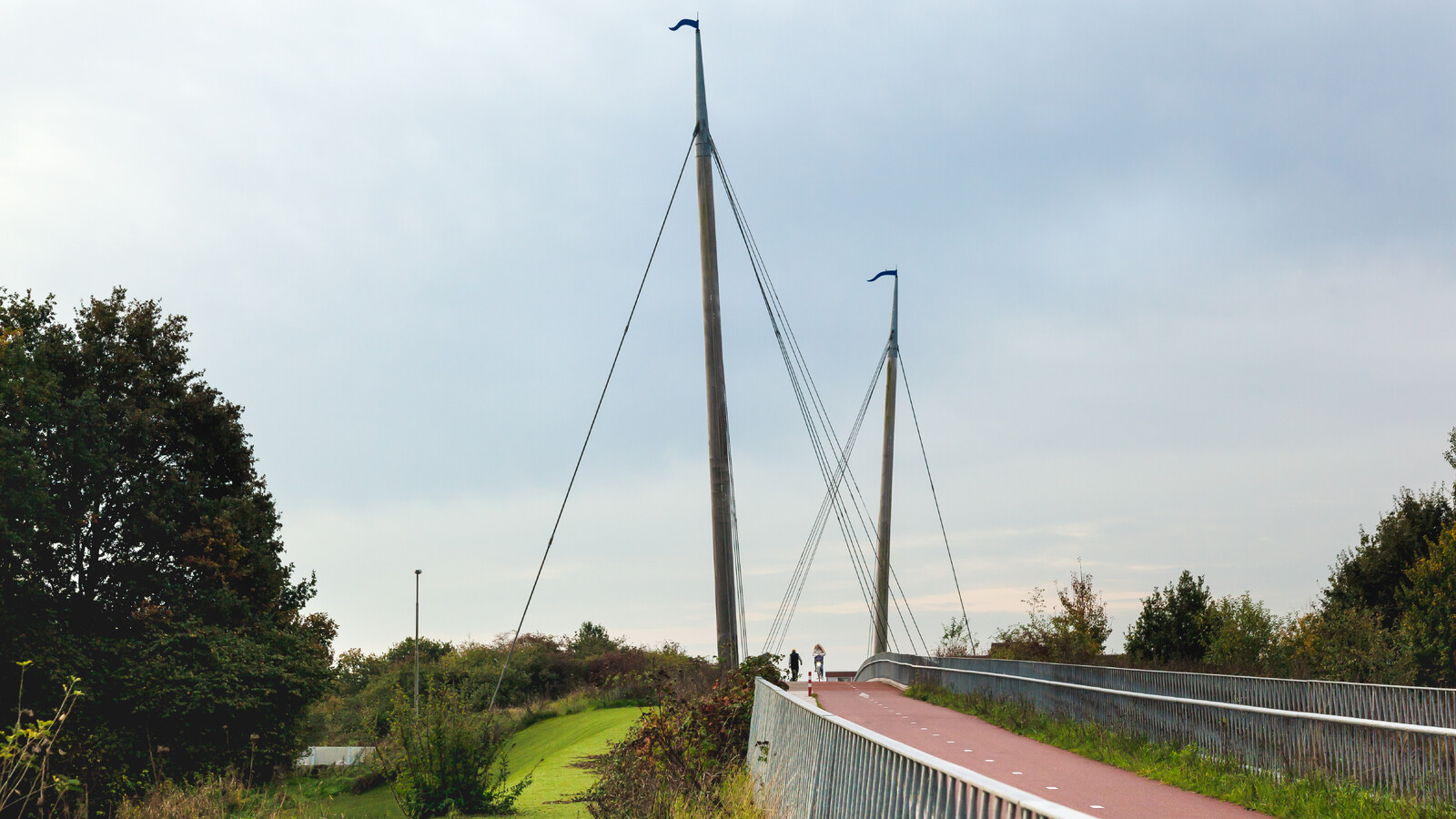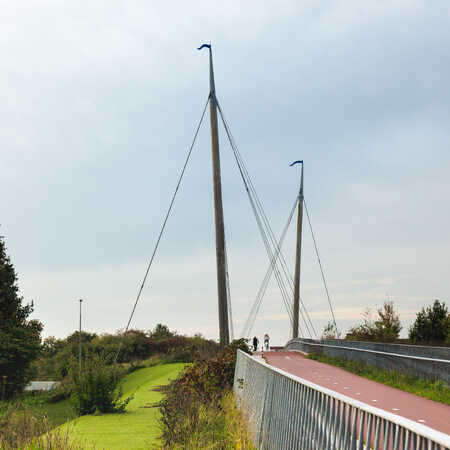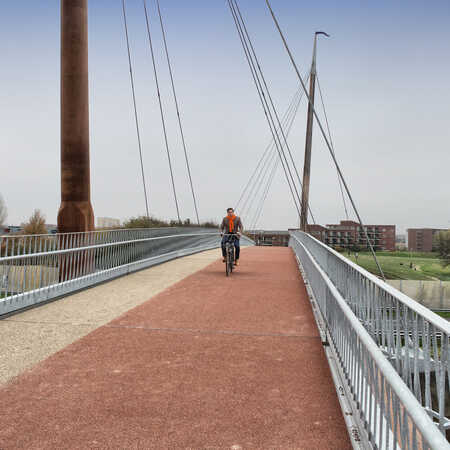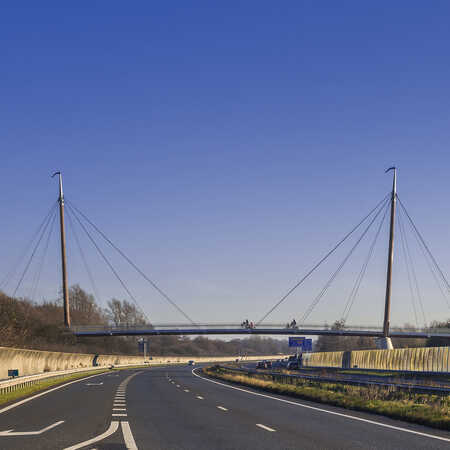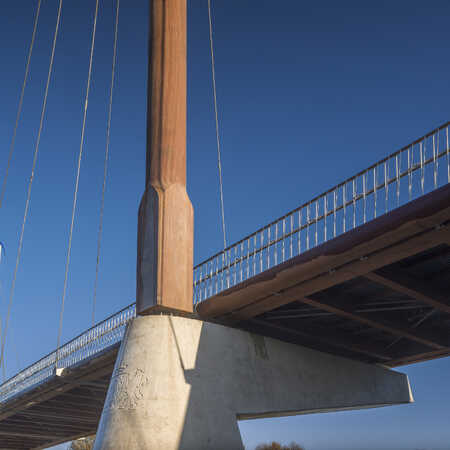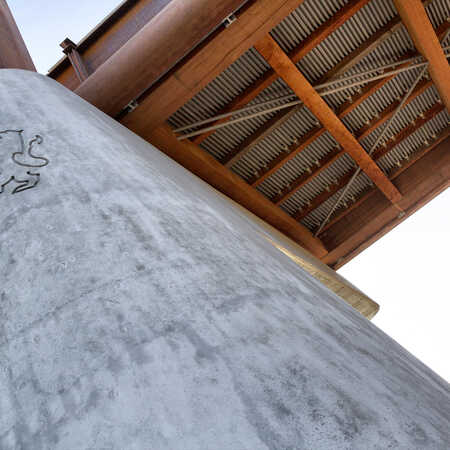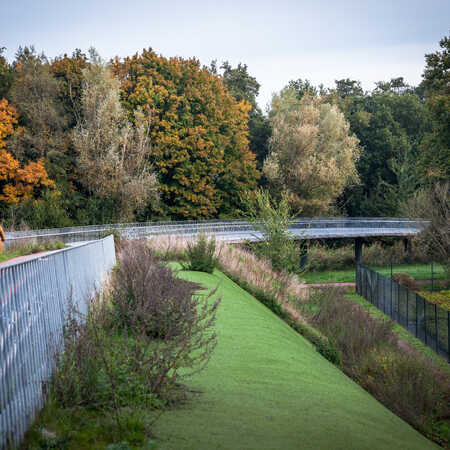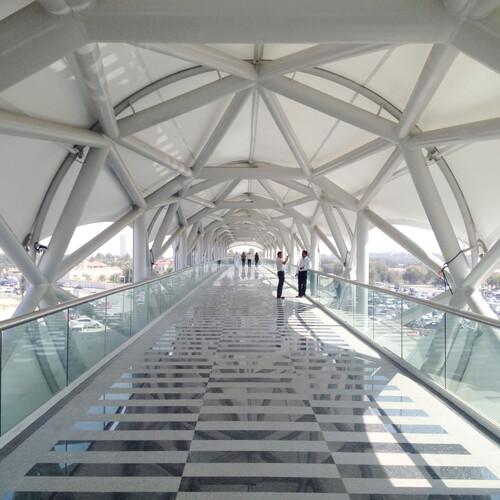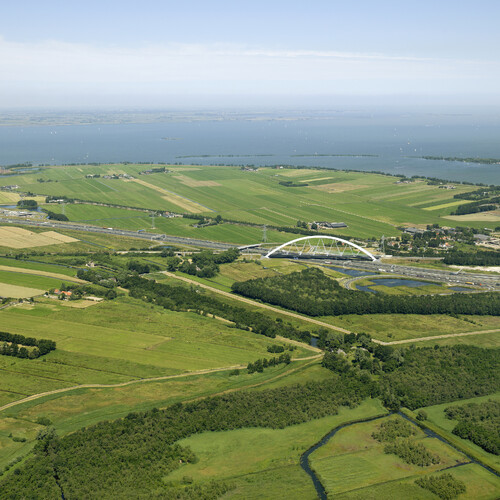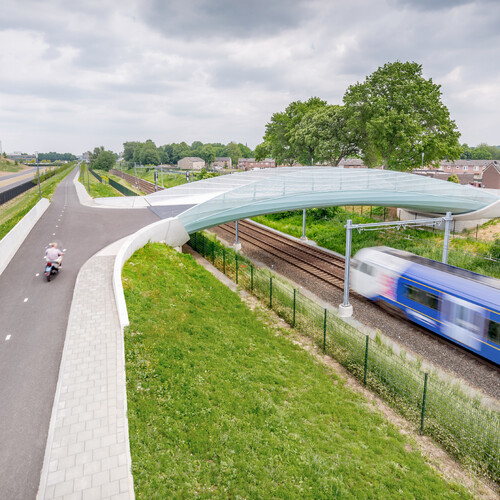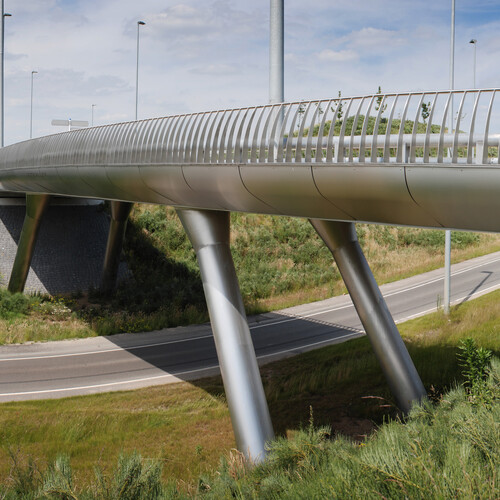Across the motorway, along the lake
When cycling from the Drielanden neighbourhood, via Stadsweiden to the centre of Harderwijk, one must cross the A28 motorway. The city council of Harderwijk commissioned a bicycle bridge to cross the motorway, located along the border of the Crescentpark. Riding through the countryside, cyclists reach the bicycle path along the banks of the Veluwe Lake that leads them into the town centre. The design requirements of the bicycle bridge stated it had to contain recognizable references to the traditional flat-bottomed sailing ships – called “botters” – that the fishing port of Harderwijk is famous for.
A typical Harderwijk bridge
Together, the Heijmans construction company, architectural studio ZJA and timber company Wijma Kampen created a design that can serve as a true gateway to the city of Harderwijk. It works as a memorable eye-catcher for both crossing cyclists and motorists on the A28 below.
The entire crossing actually requires not one, but three bridges. After making the leap across the motorway, a second equally long bridge is built in line with the first. This second bridge rests on pylons almost 8 meters apart, carrying the cyclists over a bicycle path below. Then, a small bridge with a 10 meters span is needed to cross a creek. The first two bridges are constructed in wood and the small bridge is made of steel.
Two traditional flat-bottomed ships
The design translates the theme of a port full of traditional flat-bottomed ships into a contemporary, functional and sustainable bicycle bridge. The wooden decks are inspired by the structure of hardwood lock doors, contained in a steel grid. The bridge across the motorway is a 76-meter-long cable bridge resting on two pylons. These are made of massive azobé hardwood – a type of wood used in hydro-engineering and shipbuilding – mounted on a concrete base. For a brief moment, cycling across the bridge gives the impression of being among two moored traditional flat-bottomed ships . The silhouette shows the remarkable tilt of the pylons. It refers to the recognizable asymmetric rigging of a smack and to the natural movement of moored sailing ships. The design also draws attention to the forces at play in a cable bridge spanning 50 meters. In passing, the masts and cables on either side of the bridge provide an intriguing visual experience. On top of the pylons stylized flags complete the reference to the smack fleet of Harderwijk.
Sustainable and recyclable
The 21-meter-long pylons out of azobé hardwood originate from the tropical forests managed and stewarded by the Wijma company itself, to ensure the wood is forested in a truly sustainable manner. In 2015 this project received the Dutch FSC Award for how it introduces and inspires a recyclable application for sustainable wood. The wood used in the bridge is untreated with the intention to give the bridge the opportunity to age gracefully, as it weathers in the elements and develops a patina of wear and tear. The resulting colours are a beautiful contrast to the light stainless-steel railings. Apart from historical and aesthetic reasons there is a functional reason to choose this type of hardwood, as it is very efficient in terms of maintenance.
The coat of arms of Harderwijk has been stamped as a relief into the concrete base of the pylons. The bridge appears as a recognizable gateway to the city and does so in a functional and contemporary way, using characteristic materials and with a keen eye for landscape and local history.
Award
Winner: Dutch FSC (Forest Stewardship Council) award 2015
Architect: ZJA
Principal: The municipality of Harderwijk
Client: Heijmans
Year: 2014
Project: #745
Photo's Botterbrug: John Marshall
